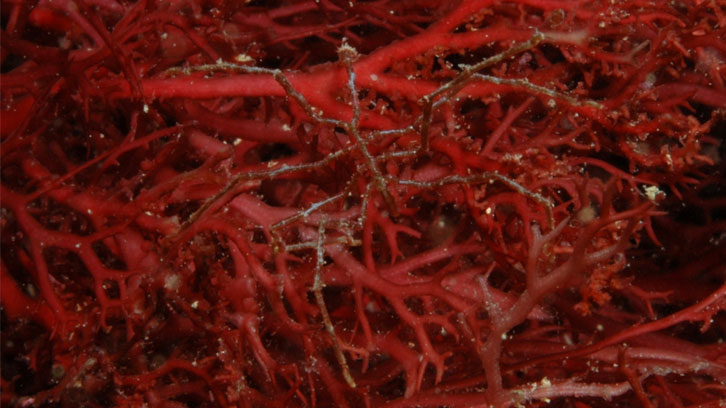Biodiversity and Biogeography of Iberian Sea Spiders (Pycnogonida)

Author: © Miquel Pontes.
The Mediterranean is an enclosed and relatively small sea. Due to its oceanographic and climatic characteristics, this area has a variety of distinct ecosystems. Therefore, this region has been recognized as a marine biodiversity hotspot and high percentages of Mediterranean marine species are endemic. However, biodiversity and biogeographic studies comparing the distribution patterns of benthic marine organisms across the Iberian Atlantic and Mediterranean waters are scarce.
The Pycnogonida (sea spiders) are cosmopolitan marine arthropods: found in the tropical seas as well as in polar waters. They can be found from very shallow waters up to very deep waters. Pycnogonids are a clear example of both endemicity and diversity, and are considered a key taxon to study and monitor biogeographic and biodiversity patterns.
This is the first review that compiles data about abundance and diversity of Iberian pycnogonids and examines their biogeographic patterns and bathymetric constraints. A total of 17,762 pycnogonid records from 343 localities were analyzed using GIS tools. They were found to contain 65 species. Achelia echinata and Ammothella longipes were the most abundant. Species accumulation curves indicate that further sampling would increase the number of Iberian species recorded.
Figure 1: A) Catalan Mediterranean Sea Littoral. C) and D) number of sampling sites and number of species of Iberian pycnogonids.
Current sampling efforts suggest that the pycnogonid fauna of the Mediterranean region may be richer than that of the Atlantic. The Straits of Gibraltar and the Alboran Sea are recognized as species-rich areas that act as buffer zones between the Atlantic and Mediterranean boundaries. The deep waters surrounding the Iberian Peninsula are poorly surveyed. Further deep-water sampling is needed mainly on the Iberian side of the Mediterranean.
References
Soler-Membrives, A.; Munilla, T. PYCNOIB: Biodiversity and Biogeography of Iberian Pycnogonids. PLoS ONE. 2015, vol. 10, num. 3, e0120818. doi: 10.1371/journal.pone.0120818.


